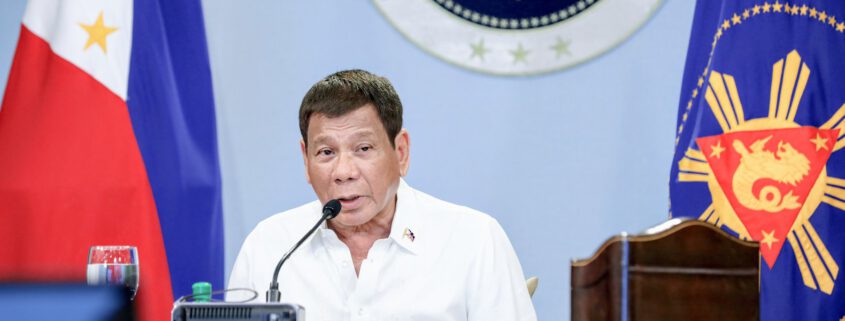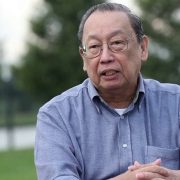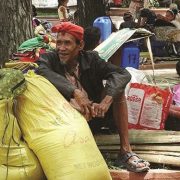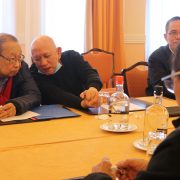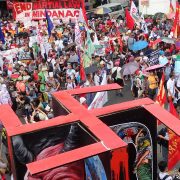CHR accuses gov’t of backtracking on commitment to divulge info on drug killings
The Commission on Human Rights (CHR) said President Rodrigo Duterte is again backtracking on his government’s commitment to divulge all information related to the war on drugs and other complaints of human rights violations.
Reacting to the President’s address last May 31, the human rights agency said the government is again regressing on its promise to grant full and unqualified access to cases involving alleged extrajudicial killings related to its anti-drug and insurgency campaigns.
Duterte on Monday night said all information related to the war on drugs and insurgency are confidential in nature and cannot be divulged.
“The new statement from the government is a setback just when the Philippine National Police (PNP) has already agreed to open around 7,000 cases to the Department of Justice (DOJ) for investigations,” CHR executive director and spokesperson Atty. Jacqueline de Guia said.
“The recent developments made by DOJ and PNP would have been a start in demonstrating a functional justice system if not for this new roadblock,” she added.
In his address, Duterte warned the CHR to be careful in assessing drug-related killings and deaths of communist rebels since members of the New People’s Army and drug lords also know how to kill.
“You remember that. It’s not [only] that we killed bad people. But how about the good ones? The working soldiers and policemen? They also get killed and in numbers,” the President said.
The CHR however pointed out that the President’s new position is a deviation from his government’s commitments to the United National Human Rights Council (UNHRC).
The CHR recalled that in June 2020, justice secretary Menardo Guevarra promised before the UNHRC that the Duterte government is “quietly conducting a judicious review” of 5,655 anti-illegal drugs operations where death occurred.
”This remark by the Philippine government has been the basis of the UNHRC resolution calling for a technical assistance and capacity building on human rights in the Philippines, despite the report of the High Commissioner of Human Rights Michelle Bachelet of a ‘widespread and systematic’ killings linked to the government’s anti-drug operations,” de Guia said.
Guevarra promised in the same statement that CHR “will be involved in its capacity as an independent monitoring body.
De Guia however lamented the CHR it is uncertain if the case files of the around 7,000 cases in question, as well as other government records pertaining to rights violations, will be shared to the CHR for its own independent probe.
READ: Groups cynical of gov’t promises to UN rights body
READ: Gov’t snubs CHR in review of anti-drug war list of victims
“CHR remains hopeful that government will return to the course of openness and cooperation in improving the human rights situation in the country. And, in this instance, genuine and straightforward investigations will be the first step in demonstrating sincere commitment to the protection of human rights and the dignity of all,” de Guia said.
In a separate statement, human rights group Karapatan also slammed Duterte’s decision to block access to records of police killings in the drug war.
“[It is] a clear and undeniable pronouncement that this government openly encourages impunity — and that is not intent on pursuing any form of justice for the victims of State violence and human rights abuses,” Karapatan said. # (Raymund B. Villanueva)

